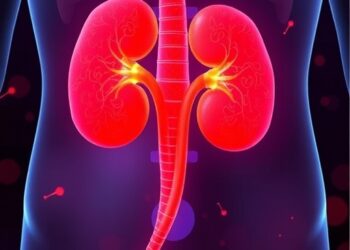White women are paid up to eight times more for their eggs than Black women in the US, according to data uncovered by the author of a new book which exposes the lesser-known ramifications of egg donation.
White women are paid up to eight times more for their eggs than Black women in the US, according to data uncovered by the author of a new book which exposes the lesser-known ramifications of egg donation.
Eggonomics by Diane M. Tober reveals statistics and stories which illuminate the rarely-told, complex realities of egg donation, and airs personal accounts of disturbing power imbalances within the industry. She takes a microscope to the industry across the globe, but in particular in the U.S. and Spain.
Donor disparities
Tober finds shocking disparities between the top rates of pay for donors by race. In her study of over 900 egg donors, the top rate for White donors in the U.S. was around $100k, relative to Black donors who received a top rate of only $12k. In one case she found, eggs from a ‘perfect donor’ were valued by prospective parents as worth $250,000. This donor was Chinese American and had a master’s degree from Massachusetts Institute of Technology.
Exposing the perspective of the industry, Tober says: “Donor profiles are the marketing tools used to attract intended parents, and those women who possess desired social and physical traits will sell faster to a wide range of intended parents than others.”
Eggonomics identifies the precarious financial position of many donors and uncovers how many have been motivated to donate eggs following the ‘cost of living’ crisis, or due to high student debt.
In the context of the pursuit of the ideal genetics, and the market value attached to them, the word ‘eugenics’ crops up repeatedly. One donor said: “…from me they wanted really, really specific things, and I was feeling like, “Oh my god. This is eugenics”.”
Writing in Eggonomics, Tober summarises the situation for many donors:
“Donors are not industry-serving machines producing products by the double or triple dozens. Sometimes they donate eggs out of financial need, or because they want to help others, and most have mixed motivations. Wherever they are in the world, they are human beings with their own lives, emotions, and physical bodies they put on the line—for a whole range of complicated reasons—to help create families for the more affluent.
“Many come to find that the abundance of eggs they counted on in their youth are not available to them later when they are ready to start their own families, and the only biological children they will ever have are being raised by someone else. Until extensive longitudinal research into egg donor health and wellbeing is conducted, and care for donors is prioritized, there will be no justice for egg donors or the families they help create.”
Tober also raises questions about whether donors may be at an increased risk of health problems following medication and subsequent donation – especially those who donate repeatedly. She includes accounts of young, healthy donors developing health problems soon after donating. The author notes that a disproportionate number seem to have no other relevant risk factors, and that some of them have physicians who suspected a causal link between egg donation and subsequent illness, and she calls for more research to be done to fully understand all the risks.
Weaving between the perils and the joys egg donors experience, Tober recognizes the complexities involved in being a donor. She calls for sweeping changes in policy and to the industry to both improve transparency and enhance egg donor rights and safety.
To that end, in Eggonomics, Tober sets out a list of recommendations for the industry:
- Recognize donors’ rights to truthful, thorough, and standardized informed consent, including how any pre-existing conditions (e.g., PCOS, endometriosis) may be aggravated by the hormones used;
- Reduce potential for donor undue inducement by eliminating financial incentives from donor recruitment advertisements and materials;
- Implement independent legal counsel for donors with enforceable terms when donor contracts are violated or when they experience medical harm;
- Recognize the rights of donors as primary patients by implementing best practices and providing donors with their medical records;
- Recognize “no means no” when a donor expresses even once that she is not interested in doing another cycle and enforce ASRM six-cycle limits;
- Rescind taxation on donor compensation;
- Implement practices to recognize all donors and intended parents have a right to be treated with respect regardless of race, gender identity, sexual orientation, and patient status;
- Recognize the rights of donor-conceived people to have access to medical information and information about their identities;
- Establish a three-pronged donor registry to track donor cycles, enforce live birth limits, and enable immediate and long-term follow-up on donor health.




